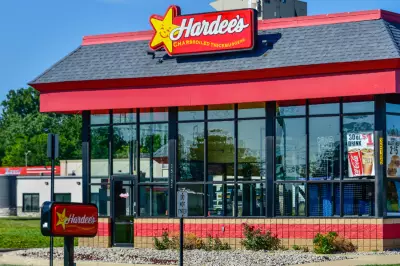
New data has exposed a staggering level of unreliability on Britain's railways, pinpointing a single station as the epicentre of last-minute train cancellations. The findings reveal a transport headache far removed from the London commuter belt, challenging preconceptions about where the UK's rail woes are most acute.
The Cancellation Capital: Manchester Oxford Road
To the surprise of many, the dubious honour of Britain's worst station for cancellations falls to Manchester Oxford Road. Official figures show that a shocking number of services scheduled to serve this busy hub were axed with minimal notice, leaving passengers stranded and plans in tatters.
By the Numbers: A System Under Strain
The scale of the problem becomes clear when looking at the statistics. The analysis, which scrutinised cancellation rates across the network, highlights a system struggling to deliver on its basic promises.
- Alarming Rates: Manchester Oxford Road experienced a significantly higher percentage of last-minute cancellations compared to other major stations.
- Operator Accountability: The data points the finger squarely at specific train operators, with Avanti West Coast featuring prominently in the list of poor performers.
- Regional Disparity: The problem isn't evenly spread, with certain regions and lines bearing the brunt of the cancellations.
Beyond Manchester: The National Picture
While Manchester Oxford Road tops the list, the issue is a national one. Other stations also recorded concerningly high cancellation rates, suggesting a systemic problem across the rail network. From Birmingham New Street to stations in Wales, the data paints a picture of a service that is too often unreliable for the passengers who depend on it.
Commuter Frustration and the Impact on Travel
The human cost of these statistics is immense. For daily commuters, last-minute cancellations mean missed appointments, late arrivals at work, and increased stress. For leisure travellers, it can ruin long-awaited trips and family visits. The erosion of trust in the timetable makes planning any journey a gamble.
"This isn't just about inconvenient delays," the report suggests, "it's about a fundamental breach of contract between the rail industry and the paying public."
What's Being Done? Calls for Action
The revelation has sparked fresh calls for rail operators and infrastructure managers to address the root causes of these cancellations. Industry experts cite a range of potential factors, from staffing shortages and ageing rolling stock to complex timetabling and infrastructure faults.
Passenger advocacy groups are demanding greater transparency and accountability, urging for a clear plan to restore reliability to a service that so many rely on. The question remains: will this data be a catalyst for genuine improvement, or simply another headline in the long-running saga of Britain's railway challenges?





